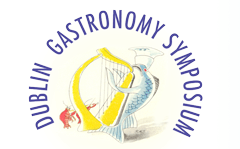Start Date
28-5-2024 2:15 PM
End Date
28-5-2024 2:30 PM
Description
In “The Intersection of Gender and Food Studies” (2013), Alice McLean writes that “[f]eminist food studies has only begun to cohere into a self-referential field of study within the past fifteen years,” a field concerned with “the female body and the myriad ways in which its appetites are nourished or suppressed by cultural forces” (250). Appetite, here, is crucially broad, and refers not only to food, but also to “knowledge, […] power, [and] creative self-expression,” as “hunger [can be] a course of empowerment” (252). Edna O’Brien’s masterful The Country Girls provides a singular literary case study in which to explore these dynamics against the backdrop of mid-twentieth-century Ireland. My paper argues that, through the language of food and of appetite more broadly, O’Brien traces main characters Cait and Baba’s developing understandings of gender, sexuality, and adulthood. O’Brien uses a rich food-based lexicon to qualify the main characters’ shifting conceptualisations of girlhood, family, and community life, to describe (and propel) formative moments in Cait and Baba’s romantic and sexual lives, and to communicate benchmarks in their journeys towards adulthood. Thus, my paper both brings sustained critical attention to the feminist potential of food in creative writing and contributes to scholarship on alimentary symbolism in Irish literature.
Creative Commons License

This work is licensed under a Creative Commons Attribution-NonCommercial-Share Alike 4.0 International License.
DOI
https://doi.org/10.21427/gg04-nf10
“I Was Doing Without Salt at That Time. As an Affectation”: Food, Gender, and Coming of Age in Edna O’Brien’s The Country Girls
In “The Intersection of Gender and Food Studies” (2013), Alice McLean writes that “[f]eminist food studies has only begun to cohere into a self-referential field of study within the past fifteen years,” a field concerned with “the female body and the myriad ways in which its appetites are nourished or suppressed by cultural forces” (250). Appetite, here, is crucially broad, and refers not only to food, but also to “knowledge, […] power, [and] creative self-expression,” as “hunger [can be] a course of empowerment” (252). Edna O’Brien’s masterful The Country Girls provides a singular literary case study in which to explore these dynamics against the backdrop of mid-twentieth-century Ireland. My paper argues that, through the language of food and of appetite more broadly, O’Brien traces main characters Cait and Baba’s developing understandings of gender, sexuality, and adulthood. O’Brien uses a rich food-based lexicon to qualify the main characters’ shifting conceptualisations of girlhood, family, and community life, to describe (and propel) formative moments in Cait and Baba’s romantic and sexual lives, and to communicate benchmarks in their journeys towards adulthood. Thus, my paper both brings sustained critical attention to the feminist potential of food in creative writing and contributes to scholarship on alimentary symbolism in Irish literature.
